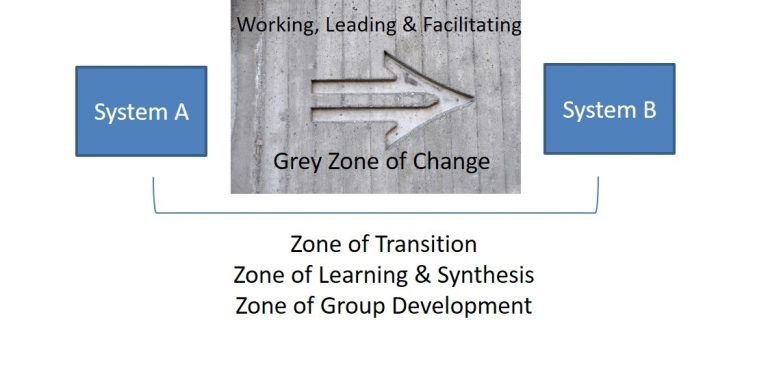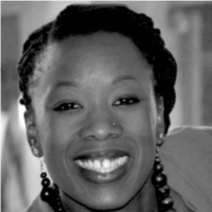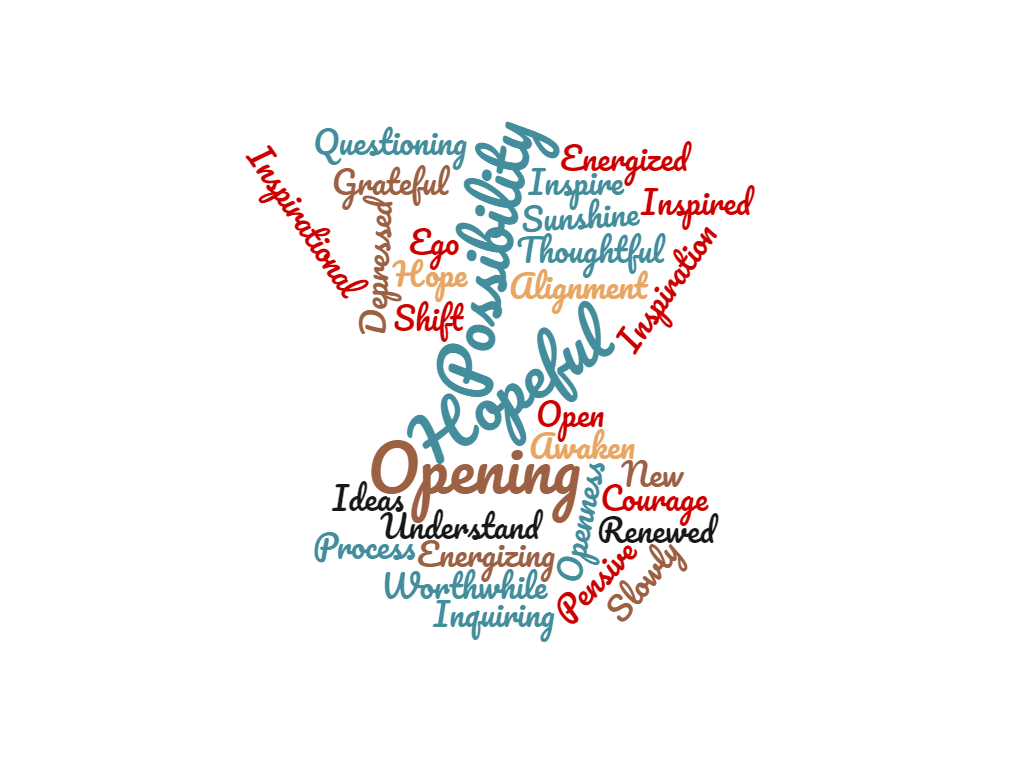The Grey Zone of Change requires us to engage differently than our default learned behaviours. This is why working, leading or facilitating in the grey zone may not be easy. It requires more mental energy and focused attention than our defaults. It requires us to get out of autopilot.
In my last post, I describe what needs to happen in the grey zone – transition, learning and group development. Since then, I have also been musing about the need for synthesis and integration. The learning that occurs in the grey zone isn’t simply about ‘letting go’ of the old, but also about ‘moving forward’ with the parts of the old that would be useful in the new era. It is a holarchical process, where new identities are forged BECAUSE of where we have been.
So what are the shifts required to work, lead or facilitate in the grey zone of change? Given that the outcome of working through the grey zone is transformational change, fundamental shifts are required in how we think, what we do and who we are in organizations.
Some core shifts that matter to affect all levels of these required shifts are:
From Hierarchical to Distributed leadership: Everyone in the grey zone needs to contribute ideas and leadership to unfolding changes. This requires that the mindset becomes of distributed leadership. In this frame, formal leaders must be willing to give up control and leaders everywhere in the system need to accept delegated power – authentic permission to innovate, experiment, make mistakes and learn, in the pursuit of what’s needed in the new world. In this frame, formal leaders become conveners of the network of informal leaders rather than sole holders of all power and authority.
From Either/or to Both/And Thinking: In the space between systems, everyone needs to be open to holding polarities in the balance. To do this, people need to be able to let go of deeply held beliefs about the way thing are and focus on the way things are becoming…and be willing to have the conversations needed as part of the journey. Self-interest and turf need to be replaced with openness to collective impact. In this frame, all contributors will require learner mindsets over fixed expert mindsets and the capacity to let go of turf in favour of discovering new possibilities.
From Singular Intelligence to Complexity Intelligence: In the grey zone, complexity abounds. Not only might there be multiple polarities to make sense of, there are patterns emerging that need to be understood and shifted or amplified and new factors continually to contend with. Work is built around pattern logic and adaptive action. The capacity to influence patterns through inquiry, coaching, and leading by example becomes paramount.
From Siloed work to Collaborative work: If it were simple to move between systems, any silo would flip the switch and make it happen. The reality is that in the grey zone, no one person has the answer and discerning the way forward requires co-creation with networked partners. What’s different in this frame is that planning, design and implementation all happen in open, safe and diverse spaces, as opposed to closed-door singularly-oriented spaces. This allows for people to share their anxieties, have their questions answered, learn together and most importantly – dream together. In this frame, specialists trade their expertise to become knowledge curators & co-creators.
From Fixed Plans to Agility: In the grey zone, fixed plans provide certainty of direction but only have practical utility in helping co-creators find the next way forward. What’s different in this frame is that everyone must learn to adapt as quickly as it becomes clear that planned changes need to be adjusted to incorporate a perspective missed or misunderstood. Sometimes plans might need to be completely overhauled. Therefore, planning is fluid and, in this frame, flexibility is the norm.
In addition to all these shifts that change how we think, what we do and who we are in the grey zone, one quality continually emerges to be as paramount in my experience of working with leaders, groups in organizations and communities in the grey zone. It has shown up in the leader who stood among the gurus to say: “I may be younger but…” It is in the way the person with the unpopular view insists on speaking up again for an important perspective that is not being addressed. It’s in the way the leader about to retire stays to contribute to co-creating the vision for a new initiative that they will not see come to fruition because “it will matter to the next generation.” That quality for me is courage – the courage to move from living in the shadows to living in the light. In the shadows, people are getting by, doing what they are told, not speaking up for what matters and not accountable to see things to the end. In the light, people choose courage over fear, which for me is the capacity to use one’s voice, find strength to act and build the tenacity to persevere.
So today, if you find yourself working, leading or facilitating in the chaos and complexity of the grey zone as so many of us are – what courage is required of you?





